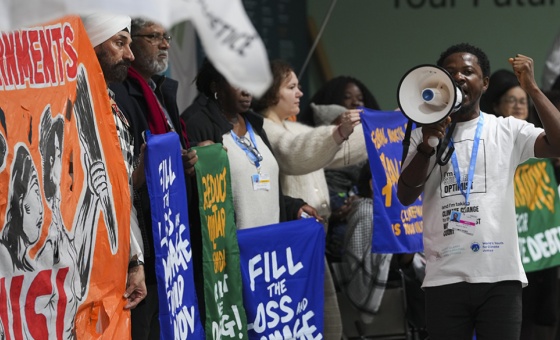This is the last article you can read this month
You can read more article this month
You can read more articles this month
Sorry your limit is up for this month
Reset on:
Please help support the Morning Star by subscribing here
THE cost-of-living crisis is still a long way from being over, trade union leaders warned today as Britain’s wage growth slowed to the lowest rate for 10 months.
Figures from the Office for National Statistics (ONS) showed that average regular earnings, excluding bonuses, increased by just 6.6 per cent in the three months to November, down from a revised 7.2 per cent in the previous three months.
It is the lowest rate since the three months to January last year and one of the steepest falls in earnings growth since during the pandemic.
The official data also showed that the rate of unemployment remained unchanged at 4.2 per cent in the three months to November, while the number of job vacancies fell by 49,000.
TUC general secretary Paul Nowak said that the average pay is still worth £13 a week less than in 2008.
“And 220,000 more people are unemployed than a year ago, with job vacancies falling for the 18th month in a row,” he said.
“Conservative failures have cost families too much for too long.
“Working people desperately need a proper plan for jobs and growth that can get living standards rising sustainably again.”
Unite general secretary Sharon Graham said the ONS figures prove that unions “are delivering the goods,” but warned that with real wages still lower now than they were in 1997, “workers are having to fight hard just to stand still.”
“We’re facing an economy blighted by profiteering, sky-high energy prices and disruption to global supply chains,” she said.
“Even though this government is determined to use anti-trade union laws to make workers pay for this crisis, Unite will not let that stop us from continuing to win at the workplace.”
Shadow work & pensions secretary Liz Kendall said: “New year, same old story of economic failure by this incompetent Tory government.
“We remain the only country in the G7 with an employment rate still below pre-pandemic levels, and there are 2.6 million people locked out of work due to long-term sickness: an all-time high that costs them and the taxpayer.”
Chancellor Jeremy Hunt acknowledged that times have been tough for many families but claimed that the rise in real wages “will offer further relief.”









